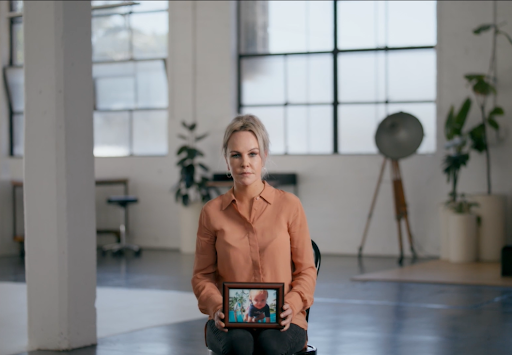Data reveals household chores and socialising to be the most common causes of breaks in active adult supervision

On the back of Victoria’s worst childhood drowning toll in over 20 years, Kidsafe Victoria is urging parents and carers to actively supervise children around water in a bid to reduce the number of drowning deaths.
The call comes as thousands of families prepare to enjoy backyard BBQs and pool parties over the summer holidays.
Research into fatal toddler drowning incidents conducted by UNSW Sydney, James Cook University and Royal Life Saving Society Australia, found that household chores – everyday tasks such as checking on dinner, taking the out the rubbish or putting the washing out – were the most common distractions which led to lapses in supervision of children around water (41%). This was followed by talking or socialising (11%) and electronic distractions (9%).
Jason Chambers, General Manager of Kidsafe Victoria, highlighted how quickly toddlers can get into trouble around water.
“Toddlers are naturally curious and love water, yet they don’t understand the dangers it can pose. A split second is all it takes for a child to gain unsupervised access to the water area and 20 seconds is all it takes for a toddler to drown”, said Mr Chambers.
Mel Anderson knows just how quickly and silently drowning can happen as she almost lost her 10-month-old son while at a Christmas family barbeque. She has shared her story in a new video titled ‘Through My Eyes’ which has been released as part of Kidsafe Victoria’s annual ‘Safe Barriers Save Lives’ backyard pool safety campaign.
“One second Matt was playing on the ground at my feet and the next, as there was no pool fence to prevent him crawling over to the pool, he fell silently into the water. I felt sick – I thought he was gone,” said Ms Anderson.
“Thankfully, my Dad had just completed a first aid course the week before and started performing CPR straight away. I’m told it was the difference between life and death for my son. I am so grateful that he is still here with me but the after effects of that day still traumatise me.”
“I’m sharing my story so others don’t have to live it.”
Despite significant reductions in toddler drowning deaths over time, drowning continues to be one of the leading causes of accidental death for Australian children under 5 years of age.
Kidsafe Victoria recommends designating supervisors so there is no miscommunication over who is keeping watch of children around water.
“At social gatherings such as BBQs and pool parties, there are lots of adults around and it can be easy to assume that someone else is actively supervising the kids, when in fact, nobody is,” said Mr Chambers.
“For toddlers, active adult supervision means keeping them within arm’s reach at all times around water, without any distractions.”
“To help make sure children are actively supervised at all times, we recommend appointing designated supervisors whose role it is to supervise children in and around the pool. Rotating this role throughout the day ensures everyone gets a chance to enjoy the festivities.”
Along with active adult supervision, compliant pool and spa barriers play an important role in keeping toddlers safe.
Chris Samartzis, CEO of the Master Pool Builders Association Australia, highlighted the importance of pool and spa owners regularly checking their barriers.
“Maintenance and compliance of pool and spa barriers is vital because they are exposed to the extremes of weather all year round which can lead to rust, loose or missing bolts or screws, and wear and tear over time.”
Kidsafe Victoria’s Summer Pool Safety Tips:
- ● Actively supervise children in and around water at all times. For toddlers, this means having an adult within arms’ reach
- ● Appoint designated supervisors at BBQs and pool parties whose role it is to supervise the kids in and around the pool. This role can be shared throughout the day so that everyone gets a chance to enjoy the festivities
- ● Ensure your pool barrier is secure and in proper working order
- ● Ensure no climbable objects are near the barrier e.g. pot plants, chairs, BBQ’s or pool pumps which could allow a child to climb over the barrier
- ● Never prop the pool gate open, this allows children easy and often unsupervised access to the pool area
- ● Don’t rely on inflatable pool toys to keep children safe – they are not life saving devices
- ● Learn CPR and update your skills regularly
- ● Be mindful of other potential outdoor water hazards, as toddlers can drown in as little as a few centimetres of water – including eskys with melted ice, wading/inflatable pools and ponds
For more information on Kidsafe’s ‘Safe Barriers Save Lives’ campaign and to download a comprehensive pool safety checklist, please visit Kidsafe Victoria’s pool and spa safety website
We would like to say a big thank you to our generous sponsors who helped make this campaign possible, the Victorian Play it Safe by the Water committee, Safetech Hardware Australia, and Master Pool Builders Association of Australia (MPBAA).
Background on near drowning incident with Mel and Matthew
In 2007 during the Christmas holiday season, Mel Anderson was enjoying a family barbeque in regional Victoria sitting with her husband and Dad when within seconds her 10-month-old son, Matthew, disappeared from where he was playing at her feet.
He had crawled outside and as there was no pool fence to prevent him gaining access to the pool, he fell silently into the water.
There were other family members there all watching out for young Matthew, yet he disappeared so quickly and quietly.
All the family got up and searched for him, then her husband found him in the pool and dragged him out. Thankfully, Mel’s Dad had just completed a First Aid course the week before and started performing CPR straight away.
As her Dad – Matthew’s Granddad – worked to breathe life back into her little son and got his heart beating, Mel recalls that it felt like hours passed and she felt sick with the thought that her son was gone. When the paramedics arrived, they took over CPR but there was still no response. Then the air ambulance arrived and he was airlifted by helicopter to the hospital.
He was put into an induced coma, and Mel was told by the Doctors that there was no hope for her son – he would likely die or at the very least suffer brain damage.
Miraculously, after 4 days, Matthew woke up and showed no signs of any brain injury. Doctors believe it was the fast actions of Mel’s Dad performing CPR that was the difference between life and death for her son.
Today, 14 years later, Matthew is a happy, strong boy living a full life – he is very fortunate not to have any ongoing issues. As for Mel – she lives with Post Traumatic Stress Disorder (PTSD) and suffers anxiety every day about Matthew being out of her sight.

